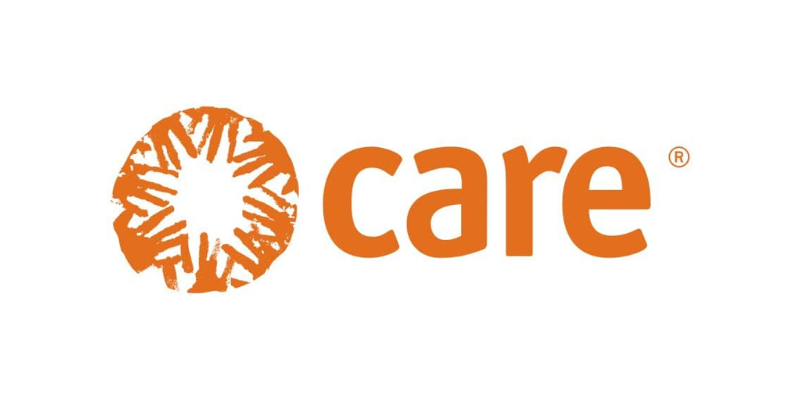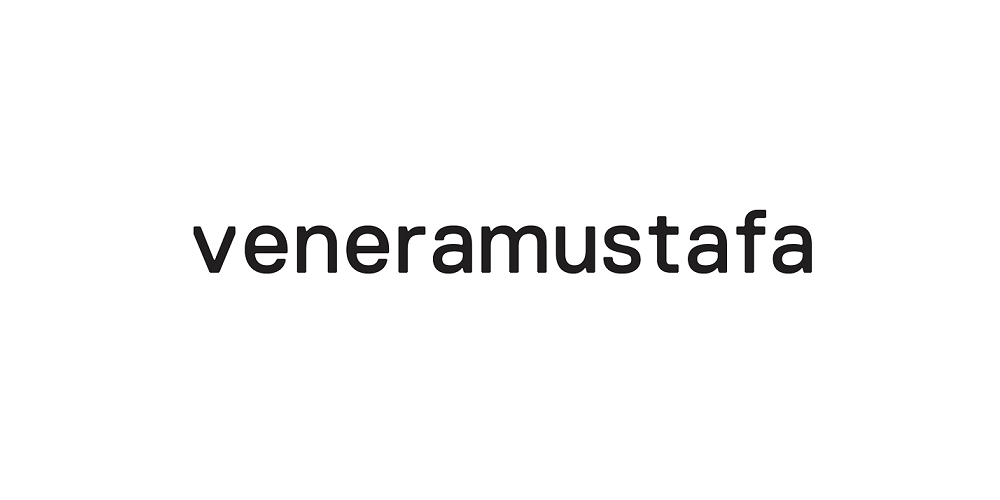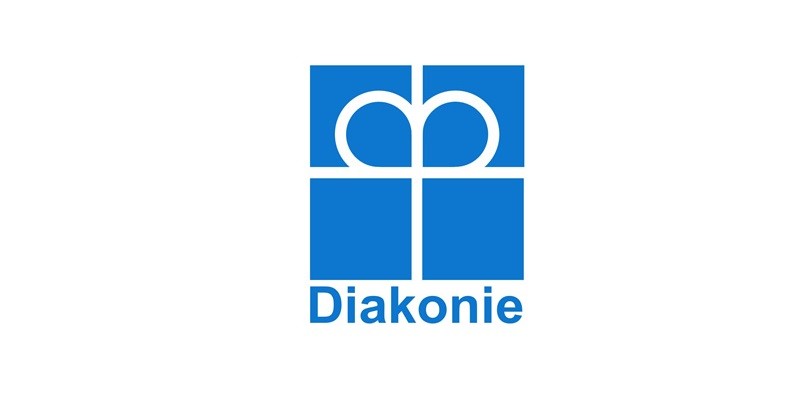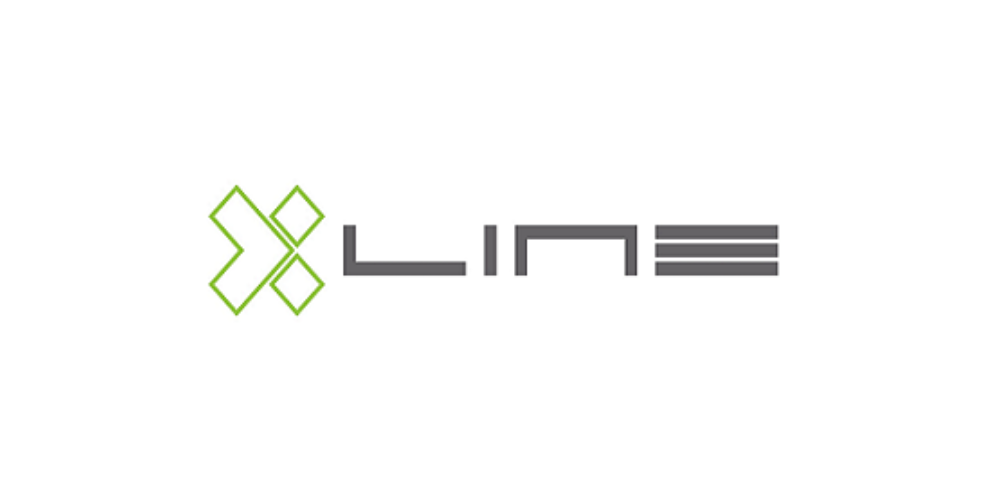Përshkrimi

Terms of Reference (TOR) Final Evaluation
TERMS OF REFERENCE (TOR)
INDEPENDENT FINAL EVALUATION OF THE PROJECT:
“IWKA – Including Women in Kosovo’s Agribusiness – Improving the Economic and Social Status of Women in Kosovo by Supporting Women-led Agribusiness”
| Project number: |
P6006 |
| Implementation period: |
01.04.2022 - 30.09.2025 |
| Field of activity: |
Agriculture Development, Economic Development, Women active participation in the economy and decision-making |
| Implementation Country: |
Kosovo |
| Donor/s: |
Federal Ministry for Economic Cooperation and Development (BMZ) and Aktion Deutschland Hilft (ADH) |
| Geographical coverage: |
Municipalities of Prishtina/ Priština, Graçanica/ Gračanica, Ferizaj/ Uroševac and Junik |
| Contract holder: |
CARE Deutschland e.V. |
| Partner NGOs: |
|
| Target groups: |
|
| Type of evaluation: |
External |
| Timing of evaluation: |
Final |
- Background and Rationale
ABOUT CARE IN THE BALKANS:
CARE’s mission in the region of Balkans is to contribute to post-war recovery, socio-economic development and building the societies of equality in Bosnia & Herzegovina, Serbia, Montenegro, Kosovo, Albania and North Macedonia. CARE’s work in the Balkans started in 1993, when it provided humanitarian support to people affected by war. In the late 90-ties, CARE shifted its focus in the region from humanitarian post-war assistance and rehabilitation to socio-economic development, engaging in interventions directed at conflict prevention and peacebuilding, sustainable livelihoods, gender equality and the prevention of gender-based violence. CARE in the Balkans places the quality of its program at the centre of its mission and has developed a regional strategy with key impact areas of Economic Justice (enhancing inclusive climate-smart economic empowerment and resilient livelihoods), Social Justice (fostering social transformation leading to enhanced) and Humanitarian Action (in emergencies, CARE will support people affected by natural or man-made disasters, conflict or displacement with lifesaving and urgently required support in line with CARE International’s global strategy). These efforts are guided by cross-cutting priorities, including promoting gender equality, advancing climate justice, strengthening social cohesion, and empowering civil society.
CONTEXT OVERVIEW
Despite having declared independence in 2008, Kosovo—now in its 17th year as a sovereign state—continues to face a range of interrelated socio-economic and institutional challenges. Weak public institutions and limited administrative capacity hinder effective governance and public service delivery, while unemployment remains persistently high, particularly among women and youth. As of 2024, the overall unemployment rate stands at over 20%, with youth unemployment exceeding 30%, and labor force participation among women hovering around 21%, among the lowest in Europe (Kosovo Agency of Statistics; World Bank, 2024). Migration remains a pressing issue, with thousands of Kosovars—especially young people—leaving annually in search of better opportunities abroad, contributing to brain drain and demographic pressures.
In rural areas, agriculture remains a crucial yet underdeveloped sector of the economy. It is marked by small and fragmented landholdings, outdated practices, limited access to finance, and a lack of technical knowledge and market connections. Moreover, the sector is increasingly vulnerable to environmental and climate-related risks such as drought, soil erosion, and irregular precipitation patterns. The low level of farmer organization—evident in the weak performance of agricultural cooperatives and associations—further constrains competitiveness, innovation, and income diversification in the sector.
While agriculture and forestry contributed only 7.22% to GDP in 2023 (World Bank), almost half of Kosovo territory (approximately 420,482 ha) is classified as utilised agricultural land, with strong potential for growth and development. Despite a steady decline in its share of GDP over the past decade: from 15% in 2008 to 6.9% in 2019 (according to the National Development Strategy and Plan 2030), agriculture continues to play a crucial socio-economic role, providing 5.5% of formal and as much as 35% of informal employment.
Despite the great importance of the development of agriculture and the development of rural areas, there are many obstacles faced related to sustainable development of this sector, such as: undeveloped infrastructure, insufficient access in markets, insufficient application of technology and the quality of education and social service.
PROJECT INFORMATION
CARE Deutschland e.V. Office in Kosovo (CARE) is implementing the project IWKA – Including Women in Kosovo’s Agribusiness – Improving the Economic and Social Status of Women in Kosovo by Supporting Women-led Agribusiness, in partnership with local partner organizations Kosovo Women 4 Women (K-W4W) and Civil Rights Program in Kosovo (CRP/K). This project is funded by the German Federal Ministry for Cooperation and Economic Development (BMZ) through Engagement Global gGmbH and Aktion Deutschland Hilft (ADH). The project implementation period is 42 months, from 01 April 2022 until 30 September 2025.
The project seeks to contribute to the empowerment of women at risk of poverty and female returnees through the acquisition of agricultural skills and the establishment of women associations, by enabling women manage their own agricultural (micro) business and improve their decision-making position within their respective families, their community and society. The project targets four (4) municipalities of Kosovo (Prishtina/ Pristina, Graçanica/ Gračanica, Ferizaj/ Uroševac and Junik).
The direct target group of the project includes disadvantaged, vulnerable women in rural areas of Kosovo. Some of them are returnees from Western countries and many are members of the Roma community. Within the project:
- 220 women developed business plans with support of CARE which will lead them to self-employment.
- For 93 women, the project has provided the in-kind support they need to establish their own (micro) agriculture business, 10% of beneficiaries are female returnees. The women have also received training on agricultural production and start-up management.
- During the project timeline, four women’s agri-business associations have been established and supported with equipment and technical support.
- Through the advocacy component, hundreds of women will benefit indirectly from the initiative to improve laws on agribusiness and to increase sensitivity of local politicians to the needs of women and returnees.
- Through the project produced documentary about returnees, the project is reaching general audience both in Kosovo and Germany. This is expected to increase awareness for the difficulties they face in reintegrating into Kosovo society.
2. Purpose, Objectives and Use
CARE is looking to engage an external consultant to undertake the final evaluation of the IWKA project in all its segments. The final evaluation, as a combination of desk review and field data collection and qualitative and quantitative analysis should to provide an independent assessment of the progress of the project. Its objectives would be to
- To assess the project’s performance through the analysis of relevance, coherence, effectiveness, efficiency, sustainability and impact of the project, based on the OECD evaluation criteria.
- To undertake additionally the following analysis:
- Assess the implementation of the project, identifying factors that affected project implementation (positively and negatively);
- Analyze the implementation strategies of the project concerning their potential effectiveness in achieving the project outcomes and impacts; including expected results as per the log frame;
- Analyze and identify the difference between planned objectives and achieved results of the project.
- To identify lessons learned and recommendations to improve future programming of CARE and partners.
The findings of the final evaluation will be primarily used by CARE and its project team to assess the performance and outcomes of the IWKA project, inform decisions, and improve future programming. The evaluation results will also be shared and used by project partners involved in implementation, as well as key stakeholders such as ministry of agriculture, forestry and rural development, municipalities with their institutions, and donor. Additionally, the evaluation will contribute to CARE’s organizational learning at the regional and international level, providing insights for the design and implementation of similar interventions in the field of women’s economic empowerment, rural development, and inclusive agriculture
3. Scope of Work
The evaluation of the project is part of the accountability obligations towards the funding donor “German Federal Ministry for Economic Cooperation and Development (BMZ)” and Aktion Deutschland Hilft (ADH). For this task, the external evaluation consultant will be engaged for maximum of 25 days over the period of September - November. The evaluation will include desk review of all available documents related to project realization, as well as the field data and information research which will take place throughout the IWKA project target territories: Municipalities of Prishtina/ Priština, Graçanica/ Gračanica, Ferizaj/ Uroševac and Junik.
Key Evaluation Questions
As one of the main outputs, the final evaluation will provide the assessment of the achievement and final values of the IWKA logframe indicators. In addition, the evaluation will analyse project implementation against the standard criteria: relevance, coherence, effectiveness, efficiency, impact and sustainability, in concrete as well as in a broader context. To ensure a comprehensive and inclusive evaluation process, feedback will be gathered from a wide range of stakeholders. These include direct project beneficiaries, project implementing partners, relevant municipal officials, representatives of local institutions, and key staff from the Ministry of Agriculture.
The external project evaluation expert will be guided (but not limited) by the following orientational evaluation questions:
Relevance and Coherence of the Project
- What are the needs and the interests of the target groups and did the project activities meet them?
- To what extent has the project addressed the needs of women in rural areas, particularly those involved in agricultural businesses??
- Is the project relevant to the identified needs of beneficiaries (target group of project)?
- To what extent has the project managed to adapt to eventual changes during the implementation period to ensure its relevance?
Effectiveness of the Project
- To what extent were the project objectives, outputs and the indicators achieved?
- What are the main factors enhancing and hindering the achievements of objectives?
- To what extent did the project reach the selected target group? Were its measures appropriate to support them?
- To what extent has IWKA been in engaging with local decision makers to promote women inclusion in agriculture?
Efficiency of the Project implementation
- Were the objectives reached in a cost-effective and cost-efficient way?
- Have the financial and human resources within the partner organizations (team, management, administration) been efficiently allocated?
- Did the project enable learning, knowledge exchange and creating synergies between the staff members and the different structure units?
- Was there an efficient results-oriented monitoring system in place throughout the implementation and to what extent was it utilized by the implementing parties?
Impact
- Did the project activities contribute to the achievement of the project goals and to what extent?
- What unintended outcomes and impacts—both positive and negative—have emerged as a result of the project? In how far do the project activities contribute and will contribute to creating better perspectives for families supported by the project?
Sustainability
- Are the achievements within the target groups sustainable from a mid/long term perspective? To what extent can results and effects be expected to continue after donors’ support has ended?
- Describe the main lessons that have emerged.
- What are the recommendations for similar support in the future?
Methodology
The final evaluation will be conducted by an external expert consultant, or a company. The selected evaluator will be responsible for designing a comprehensive methodology and timeline in close consultation with CARE. The evaluation will assess the full scope of the project and its results framework, and will serve as a key learning process, enabling the project team and stakeholders to critically reflect on all phases of Project Cycle Management (PCM)—including implementation tools and methods, intervention design, management techniques, and communication practices.
The evaluator is expected to present a detailed methodology that aligns with the objectives and evaluation questions set forth in the Terms of Reference. A participatory approach will be applied to ensure that CARE staff and relevant stakeholders are actively involved throughout the evaluation process, fostering open and honest discussions around both achievements and challenges, and creating a shared understanding of the project’s progress and impact.
To build a comprehensive and evidence-based assessment, a combination of quantitative and qualitative data collection methods will be used, capturing diverse perspectives from various stakeholder groups. The suggested methods include, but are not limited to:
- Document Review (Secondary Data): The evaluator will review all relevant project documentation, including original and amended project proposals, updated logframe and budget, planning and monitoring matrixes, activity plans, baseline report, mid-term review, narrative and financial reports, and any other material considered critical for contextualizing the project.
- Interviews: Interviews will be conducted with CARE project staff, implementing partners, government officials (including municipal representatives), and project participants, to collect in-depth insights and assess project relevance, coherence, and effectiveness from different angles.
- Focus Group Discussions (FGDs): FGDs will be organized with specific stakeholder groups, especially women beneficiaries, keeping group sizes between 6–8 participants to ensure meaningful engagement and discussion.
- Questionnaires/Surveys: The evaluator will design structured questionnaires guided by the key evaluation questions, to collect standardized feedback from a broader sample of beneficiaries and stakeholders.
- Geographic Scope: The evaluation will cover all project target areas, with data collection taking place where project activities were implemented. The evaluator is expected to reflect contextual differences across regions and communities in the analysis.
Field visits and primary data collection will be coordinated with support from CARE, including access to stakeholders, logistical arrangements, and relevant documentation. All methods must respect ethical research standards, ensure informed consent, and guarantee the confidentiality and dignity of all participants.
4. Process
The selected consultant will be expected to perform the following tasks:
- Design a Final Evaluation Plan based on the objectives of the task, in communication with and approval from CARE Project Manager.
- Review relevant project documents, as well as general reports, decisions, studies and surveys on the subject of the project and consultancy.
- Undertake a field analysis in all municipalities of the target project area, employing qualitative and quantitative data collection methods necessary for obtaining relevant and required information, i.e. interviews with beneficiaries, main stakeholders, agencies, focus group discussions, polls, etc.
- Provide the final values and achievement level (with analysis and explanations) on all project log-frame indicators for measuring project effectiveness and project impact during and/or after the completion of the project activity.
- Design and deliver a one-day workshop (in English language) in Pristina, with the project staff and project partner, for debriefing of preliminary findings of the Final Evaluation and discussing implications on implementation and instalment of the evaluation recommendations into future project interventions.
- Prepare a well-structured Final Evaluation Report (in English language), to be submitted to CARE.
5. Outputs and Deliverables
- Inception report including agreed evaluation approach, outline of the report, timeline, workplan, subject to approval of CARE Project Manager.
Consultancy outputs:
- Desk review of relevant documents.
- Field data and analysis.
- One-day workshop with the project team
- Final Evaluation Report 20-25 pages (plus annexes).
All outputs are expected in English language
Written Report consisting of the following elements:
- Cover page
- Table of contents
- An executive summary of 2 pages, that can be used as a project promotion document to be disseminated to third parties. The summary highlights the most important recommendations, results and lessons learned.
- Introduction - purpose, objectives and scope of the evaluation.
- Brief background and context - fundamental information on the project, context (national, political, economic, social, cultural background), partners, locations, costs, objectives, expected results, intervention logic and target groups (number according to sex, ethnicity, etc.).
- Methodology overview of methods and techniques applied for collection and processing of data and information.
- Evaluation findings presented in detail, according to the set criteria with comprehensible statements and conclusions supported by (sex-disaggregated) data.
- Conclusions - a summary of the results of all evaluation questions.
- Recommendations for future programming.
- Annexes – updated project Logframe, ToR, schedule of the evaluation, list of key informants, references and documents used, questionnaires or other instruments and materials used in the evaluation; Reports prepared for the field study.
6. Expertise Profile of the Evaluation Team
CARE invites individual experts, expert teams, companies, experienced in project evaluations in the context of agricultural development initiatives, to submit their bids and present their relevant expertise and experience. The general requirements for Consultants’ expertise are:
- Master’s degree in economics, agriculture, social sciences, or any other relevant university degree related to the evaluation task.
- At least 5 years of experience in the field of agriculture sector development, and/or economic development, with direct work with farmers.
- Experience in project cycle management.
- Rich documented experience in results-based evaluations, data collection, and interpretation (experience in evaluating projects that are funded by the BMZ is an advantage).
- Good presentation skills, good knowledge of participatory workshop techniques.
- Excellent analytical and report writing skills in English, both oral and written. The expert must also be able to communicate effectively with beneficiaries in local languages.
- Clear demonstration that the consultant(s) is able to meet the consultancy task in the envisaged timeframe.
7. Tentative Timetable
This assignment is anticipated to take place between 01.09.2025 - 30.11.2025. Total duration of the final evaluation process is estimated to be 25 working days.
| List of tasks | Responsible | Tentative timeline |
| Selection of the consultants and contract signing | CARE / IWKA | First week of September |
| Submission of draft Inception report including design of evaluation instrument | Evaluator(s) | 25th September |
| After approval of inception report Field visit and data collection | Evaluator(s) | First half of October |
| Draft evaluation report submission to CARE | Evaluator(s) | 20th October |
| CARE’s feedback on the draft report | CARE / IWKA | End of October |
| Submission of Final Evaluation Report with annexes and original documentation to CARE | Evaluator(s) | 3rd November |
| Review for approval of Final Report | CARE | 11 November |
8. Management of the Evaluation
The evaluation will be managed under the overall supervision of the CAREs core staff such as Project Manager, Regional Program Quality Manager and Socio-Economic Inclusion Program Advisor. and Desk Officer Balkans who will ensure alignment with project objectives, donor requirements, and organizational standards with support by the partners W4W-K and CRPK.
CARE will make sure to:
- Make its core staff and data set available to support for the study.
- Support to arrange focus groups with the project participants.
- Support to facilitate contacts with key stakeholders
- Provide internal standards and policies in soft copy.
- Provide Access to reports and data during the planning and execution phases of the evaluation
The consultant(s) will make sure to:
- Review the internal standards and policies (Code of conduct, Safeguarding policy).
- Provide its own telecommunication, supplies, transport and catering during the assignment.
- Keep frequent contact with the CARE Team regarding the progress of the evaluation.
- Follow the time frame as indicated in the timeline.
- Maintain full confidentiality of the project participants and evaluation subjects’ opinions and data outside the study.
- Maintain full confidentiality of employees, documents and CARE outside the study.
- Submit deliverables in a professional and timely manner, aligned with the quality standards agreed upon in the Terms of Reference.
9. Quantity Structure
The Consultant will be engaged for 25 full consultancy days, over the period 1st of September – 30th of November 2025, according to the following timetable.
| Phase | Tasks | No. of days for Evaluator |
|
I |
Inception Meeting and Work plan |
5 |
| Desk Review of project background documents. | ||
| Inception report. | ||
|
II |
Consultations with project staff. |
11 |
| Interviews/FGDs and field visits with project staff, partners, beneficiaries. | ||
| Analysis of collected data. | ||
|
III |
Presentation of preliminary findings |
1 |
|
IV |
Draft Evaluation report |
4 |
|
V |
Final Evaluation report |
4 |
|
TOTAL |
25 |
|
The Consultant’s bid/application should be submitted in English and consist of the following:
- Consultant(s)'s CV(s) or portfolio, with detailed information relevant to the required qualifications including two relevant references from similar evaluations conducted to international organisations.
- Methodology and draft consultancy plan – implementation plan (schedule) for the consultancy.
- Bid – financial offer: The Consultant shall suggest a gross daily fee/rate in EUR per consultancy and an excluded VAT daily fee/rate in EUR for the companies. Transportation, food and accommodation costs will not be covered by the project. There is no standard format for the bid.
- Copies of the business registration certificate, VAT etc. (for companies).
The received applications will be evaluated against the following criteria:
The bids will be evaluated based of the cumulative analysis methodology. Technical and quality evaluation weigh 70% and financial criteria weigh 30%.
Only the bids obtaining a minimum of 70 points in the technical evaluation shall be considered for the financial evaluation. The evaluation criteria that shall be as follow:
| Criteria | Weight | Max point |
| Technical and quality evaluation | 70% | 100 |
|
EXPERIENCE Work with the agricultural sector in Kosovo and relevant stakeholders /agencies |
35 | |
|
REFERENCE /HISTORY Consultant(s) experience on similar tasks /subject |
30 | |
|
METHODOLOGY / APROACH Effectiveness of the planned methodology for the task |
20 | |
| KNOWLEDGE /SKILLS (for the task) | 15 | |
| Financial offer (value for money) | 30% |
Interested candidates are invited to apply to the e-mail: [email protected], at the same email address interested candidates may request additional information.
|
Date |
Event / Deadline |
| 08.08.2025 | Call for applications issued |
| 17.08.2025 | Deadline to request additional information from CARE |
| 21.08.2025 | CARE to provide requested information to all interested parties |
| 24.08.2025 | Application submission deadline |
Attachments provided documents after contract start
- Introductory documents and references.
- Structure of the evaluation report.
- Important documents from preparatory phases, if applicable.
- TOR for the overall project in which the evaluation is embedded, if applicable.
- Methodological guidelines, if applicable.
- Separate TOR for individual members of the evaluation team, if applicable.
- Assessment grid for the selection of the company/organisation or institute.
- Optional: Evaluation matrix.






